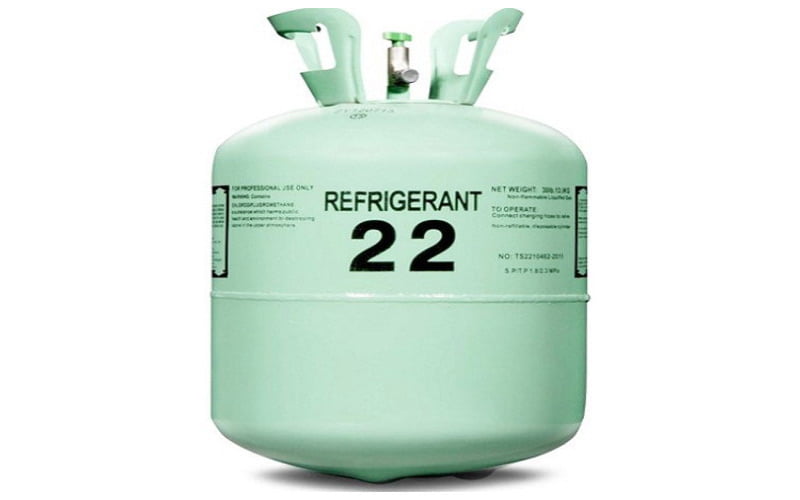R22 & R407C System Replacement
R22 Phase Out:
Since 1st January 2010, the production of the Refrigerant Type R22 was discontinued. By the year 2015 it was to be totally illegal to work or replenish charge on any existing R22 system. These actions were taken due to the high Ozone Depletion properties of R22 Refrigerant. thus meaning a replacement system, or replacement refrigerant (aka ‘drop-in’ charge) for most businesses.
We always avoid the ‘drop-in’ option, and advise customers against it… Imagine changing a diesel engine in a car to a petrol engine- Yes it can be done, but the costs outweigh the benefits economnically long term.
We always advise a Retro-Fit solution:
This involves keeping the original pipe-work and cables from your current R22/R407C system (which is often the most expensive part of new AC Installations because of labour, containment, & installation materials costs) and simply replacing both the indoor and outdoor units with modern R410A or R32 Inverter Driven units, after the pipes have been chemically flushed to recovery any remaining mineral oil in the system. Newer modern units are also up to 70% more efficient to run than R22/R407C Fixed Speed Systems.
In a recent survey (carried out in Dec 2019) just over 89% of customers who chose Shiva Air Conditioning to Retro-Fit there company’s existing AC systems between 2015 – 2017, covered the full cost of the Retro-Fit within 2-3 years because of the reduction in operation costs achieved. They all (100% of the survey) confirmed benefitting with cheaper electricity bills compared to the old R22/R407C system they were using.
We strongly recommend upgrading your existing R22/R407C system sooner rather than later, as opposed to letting your system run until a fatal compressor burnout failure occurs, and inevitably contaminating the pipe-work- rendering it now useless, and unable to qualify for a Retro Fitting purpose.

F-Gas Legislation:
What is the F-Gas Legislation?
Fluorinated greenhouse gases (F-Gases)
The European Regulation on certain fluorinated greenhouse gases (Regulation 842/2006) came into force for most provisions in July 2007. Its principle aim is to reduce greenhouse gas emissions through the containment and prevention of emissions; phase out of these gases is not generally a requirement of the Regulation except for some specified uses. In many cases, ozone depleting substances were replaced by fluorinated greenhouse gases in the refrigeration and air conditioning sector. One of the specific requirements of the Regulation is to carry out periodic leak checking of equipment containing F-Gases, the frequency depending on the quantity of gas contained, as follows:
- 3kg F-Gas content – minimum annual leak check
- 30kg F-Gas content – minimum once per 6 months leak check
- 300kg F-Gas content – minimum once per 3 months leak check
Therefore, while it is clear that there is some overlap with the requirements under the ODS Regulation, the requirements are more onerous under the F-Gas Regulation.
“Leak Check” means that the system is examined for leaks using direct and indirect measuring methods (yet to be established) focusing on those parts of the system most likely to leak.
The legal requirements came into effect on January 1st 2007. Products with less than 3kg of R410a or R407C and all products using R22 are exempt from this regulation – the minimization of refrigerant leakage is however an ideal for all systems.
3 Owners / operators of systems shall maintain records (available for inspection) on:
- Details of each system containing 3kg or more of R410a and the required charge
- Quantities added and/or recovered during servicing, maintenance and final disposal.
- The company/technican who performed the servicing or maintenance
- The dates and results of leakage checks
Systems shall be leak tested within one month of repairs being carried out to ensure that the repair has been effective. Contact us today for a demonstration or viewing, of our new maintenance schedule ledgers, supplied to our maintenance contract holders.
Recovery of Rerigerants from systems:
- Owners/operators of these systems shall ensure the re-cycling, reclamation or destruction of R410a by verified/certified personnel
- When an Refrigerant container reaches the end of its life, the person utilizing the container for transport or storage purposes shall be responsible for the proper recovery of any residue
- Recovery, for the purpose of re-cycling, reclamation or destruction of Refrigerant, shall take place before the final disposal of that equipment and, when appropriate, during it’s service and maintenance.
Training and Certification of personnel
There are minimum requirements of training and certification for both companies and personnel involved in installation, maintenance, or servicing of equipment.
The operator of the relevant application shall ensure that the personnel are certified.
Companies involved in the installation, maintenance or servicing of equipment shall only take delivery of Refrigerants where their relevant personnel are certified.
You can check our up to date FGAS certification at all times on www.fgasregistration.ie
You can check our PAN (Prior Annual Notification) with the EPA at http://www.epa.ie/air/airenforcement/ozone/wasteodsfgasespriorannualnotifications/
All Shiva’s Office Staff, Engineers, & Technician’s are fully up to speed about all the above issues. If you have any further questions, please don’t hesitate to contact us, you can be assured that the advice you receive will be in a honest, professional, truthful, and friendly manner.
We give free quotations in the Dublin Area, and all our work is 100% Guaranteed
